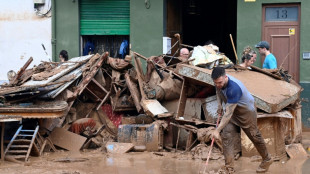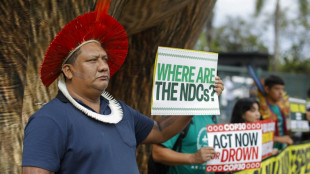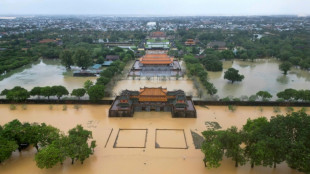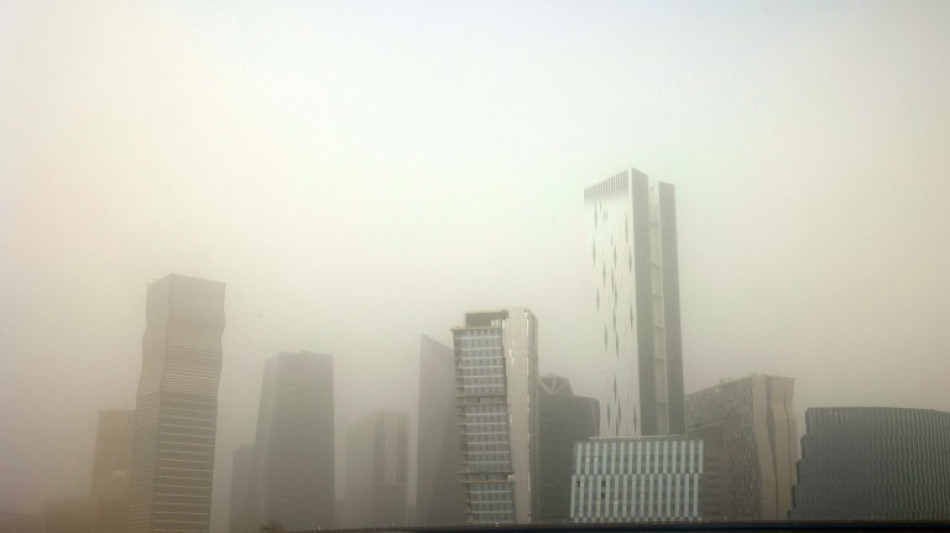
-
 Slot defends League Cup selection despite not meeting 'Liverpool standards'
Slot defends League Cup selection despite not meeting 'Liverpool standards'
-
'Poor' PSG retain Ligue 1 lead despite stalemate and Doue injury

-
 Liverpool crisis mounts after League Cup exit against Palace
Liverpool crisis mounts after League Cup exit against Palace
-
Kane scores twice as Bayern set European wins record

-
 Radio Free Asia suspends operations after Trump cuts and shutdown
Radio Free Asia suspends operations after Trump cuts and shutdown
-
Meta shares sink as $16 bn US tax charge tanks profit

-
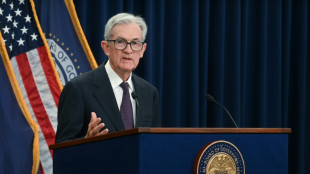 Dollar rises after Fed chair says December rate cut not a given
Dollar rises after Fed chair says December rate cut not a given
-
Google parent Alphabet posts first $100 bn quarter as AI drives growth

-
 Rob Jetten: ex-athlete setting the pace in Dutch politics
Rob Jetten: ex-athlete setting the pace in Dutch politics
-
Juve bounce back after Tudor sacking as Roma keep pace with leaders Napoli

-
 Favorite Sovereignty scratched from Breeders' Cup Classic after fever
Favorite Sovereignty scratched from Breeders' Cup Classic after fever
-
Doue injured as PSG held at Lorient in Ligue 1

-
 Leverkusen win late in German Cup, Stuttgart progress
Leverkusen win late in German Cup, Stuttgart progress
-
Jihadist fuel blockade makes life a struggle in Mali's capital
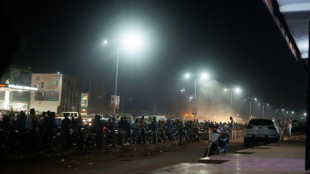
-
 Uber plans San Francisco robotaxis in Waymo challenge
Uber plans San Francisco robotaxis in Waymo challenge
-
Paramilitary chief vows united Sudan as his forces are accused of mass killings
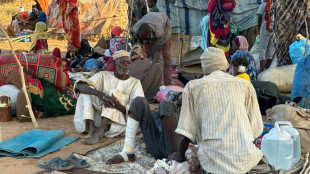
-
 Trump, Xi to meet seeking truce in damaging trade war
Trump, Xi to meet seeking truce in damaging trade war
-
Divided US Fed backs second quarter-point rate cut of 2025

-
 'Amazing' feeling for Rees-Zammit on Wales return after NFL adventure
'Amazing' feeling for Rees-Zammit on Wales return after NFL adventure
-
'Cruel' police raids help, not hinder, Rio's criminal gangs: expert

-
 S. African president eyes better US tariff deal 'soon'
S. African president eyes better US tariff deal 'soon'
-
Sinner cruises in Paris Masters opener, Zverev keeps title defence alive

-
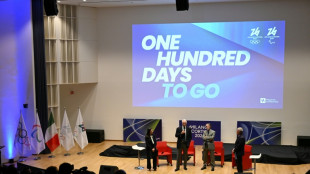 Winter Olympics - 100 days to go to 'unforgettable Games'
Winter Olympics - 100 days to go to 'unforgettable Games'
-
Kiwi Plumtree to step down as Sharks head coach

-
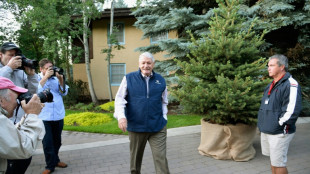 US media mogul John Malone to step down as head of business empire
US media mogul John Malone to step down as head of business empire
-
'Never been this bad': Jamaica surveys ruins in hurricane's wake
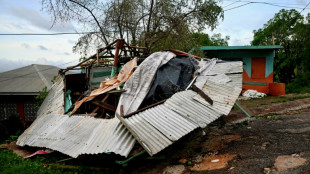
-
 Zverev survives scare to kickstart Paris Masters title defence
Zverev survives scare to kickstart Paris Masters title defence
-
Rabat to host 2026 African World Cup play-offs

-
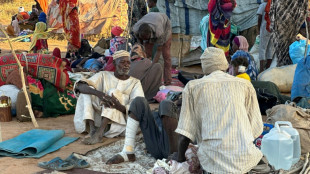 WHO urges Sudan ceasefire after alleged massacres in El-Fasher
WHO urges Sudan ceasefire after alleged massacres in El-Fasher
-
Under-fire UK govt deports migrant sex offender with £500

-
 AI chip giant Nvidia becomes world's first $5 trillion company
AI chip giant Nvidia becomes world's first $5 trillion company
-
Arsenal depth fuels Saka's belief in Premier League title charge

-
 Startup Character.AI to ban direct chat for minors after teen suicide
Startup Character.AI to ban direct chat for minors after teen suicide
-
132 killed in massive Rio police crackdown on gang: public defender

-
 Pedri joins growing Barcelona sickbay
Pedri joins growing Barcelona sickbay
-
Zambia and former Chelsea manager Grant part ways

-
 Russia sends teen who performed anti-war songs back to jail
Russia sends teen who performed anti-war songs back to jail
-
Caribbean reels from hurricane as homes, streets destroyed
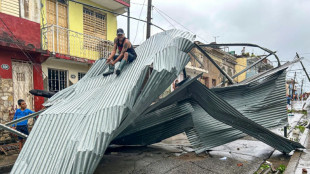
-
 Boeing reports $5.4-bn loss on large hit from 777X aircraft delays
Boeing reports $5.4-bn loss on large hit from 777X aircraft delays
-
Real Madrid's Vinicius says sorry for Clasico substitution huff

-
 Dutch vote in snap election seen as test for Europe's far-right
Dutch vote in snap election seen as test for Europe's far-right
-
Jihadist fuel blockade makes daily life a struggle for Bamako residents
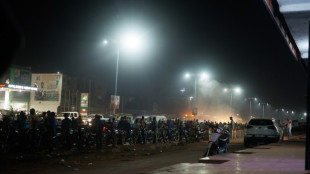
-
 De Bruyne goes under the knife for hamstring injury
De Bruyne goes under the knife for hamstring injury
-
Wolvaardt's 169 fires South Africa to 319-7 in World Cup semis

-
 EU seeks 'urgent solutions' with China over chipmaker Nexperia
EU seeks 'urgent solutions' with China over chipmaker Nexperia
-
Paris prosecutor promises update in Louvre heist probe

-
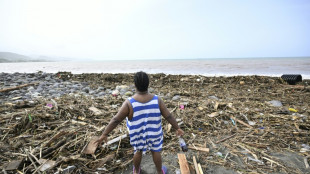 Funds for climate adaptation 'lifeline' far off track: UN
Funds for climate adaptation 'lifeline' far off track: UN
-
Record Vietnam rains kill seven and flood 100,000 homes
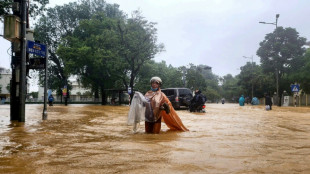
-
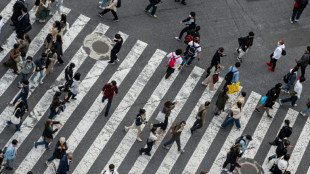 Markets extend record run as trade dominates
Markets extend record run as trade dominates
-
Sudan govt accuses RSF of attacking mosques in El-Fasher takeover
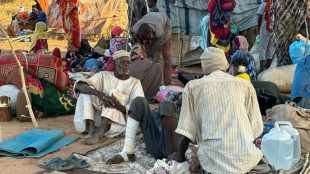

Mideast sandstorms snarl traffic, close schools, harm health
Sandstorms across the Middle East have delayed flights, closed schools and hospitalised thousands -- a phenomenon experts say could worsen as climate change warps regional weather patterns.
Saudi Arabia on Tuesday became the latest country blanketed with dust that slowed traffic and made iconic towers in the capital difficult to see from more than a few hundred metres (yards) away.
Electronic signs along Riyadh's highways warned drivers to reduce their speed because of the lower visibility, even as life largely went on as usual in the kingdom.
The national meteorology centre predicted that "surface dusty winds" originating in the east and bringing a thick grey haze would continue west towards the Muslim holy cities of Mecca and Medina.
Other countries have been grappling with the problem for longer: Neighbouring Iraq has experienced eight sandstorms since mid-April, fuelled by soil degradation, intense droughts and low rainfall linked to climate change.
The country's latest sandstorm on Monday enveloped the capital Baghdad in an orange glow, sent at least 4,000 people to hospital with breathing problems and led to the closure of airports, schools and public offices across the country.
Iran announced that it, too, was closing government offices and schools Tuesday, citing "unhealthy weather" conditions and sandstorms.
Average airborne concentration of the finest and most hazardous particles (PM2.5) was at 163 microgrammes per cubic metre Tuesday in Tehran, according to a government website.
That is more than six times the World Health Organisation's recommended maximum of 25 microgrammes per cubic metre.
In Kuwait, meanwhile, air traffic at the main airport was suspended for an hour and a half due to a dust storm Monday, and marine traffic in all three ports remained suspended as of Tuesday afternoon.
Kuwait's ministry of education said classes were suspended on Tuesday but would resume the following day.
- Response needed 'urgently' -
The Middle East has always been battered by dust and sandstorms, but they have become more frequent and intense in recent years.
The trend is associated with overgrazing and deforestation, overuse of river water and more dams.
Unseasonable masses of dry, cold air help explain the recent proliferation of sandstorms in eastern Syria and Iraq and "their transmission to the Arabian Peninsula", Hassan Abdallah from the WASM meteorological centre in Jordan told AFP.
By the time the sandstorms reach Saudi Arabia they tend to be less intense, he added.
Sandstorms are worsening regionally because of factors including low water levels in the Tigris and Euphrates rivers, large fluctuations in annual rainfall and disintegrating soil, he said.
In central Riyadh on Tuesday, sand layered cars and buildings, and residents struggled to keep it out of their homes.
"Working outside is very difficult because of the dirt," a Pakistani construction worker who gave his name as Kalimullah told AFP as he installed tiles.
"I try to wash my face from time to time," the 30-year-old added, wrapping a piece of cloth around his face to block the sand.
Saudi office worker Abdullah Al-Otaibi, 39, said he was grateful he works indoors.
"Dust storms are part of our culture and we are used to it, but some of them are severe," he said, rubbing his eyes as he hurried inside.
A.Gasser--BTB

